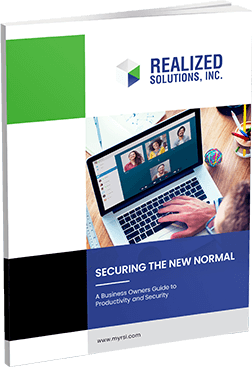RSI works with many of its partners to migrate, configure, and manage solutions in the Microsoft Azure Cloud. There are many advantages to using Azure in a full or hybrid cloud configuration:
Scalability
The Azure cloud helps you save physical space, but did you know it can also automatically scale to your resource needs? When your system is under heavy use, Azure autoscaling functions can upgrade the resources needed vertically (increasing the capability of a single resource) or horizontally (adding more resources to help handle the load). Scaling up (and down) automatically means immediate responsiveness to mitigate potential performance related issues based on load, eliminating the downtime required to troubleshoot and reconfigure manually. This smooth transition provides better service to your employees, customers, and users and drives increased efficiency and productivity from your workforce. Being able to scale up or down as needed without having to physically intervene is a game changer.
Backup and Recovery
Azure has its own secure, built-in backup systems, eliminating the need for third-party options and a different set of tools. Azure’s backup solution provides plenty of options for how you want to take backups, how frequently, and even if you want to keep files “hot” or “cold.” Almost everything is customizable to what your needs are. There are even short-term backup services. For example, if a file is recently deleted, it can be recoverable for a set amount of time.
Understanding the difference between ”hot” and “cold” backups is useful in terms of cost saving. A hot backup is one you know you’ll need to access soon, and Azure will keep it ready for you on-demand. A cold backup is something you know you’ll be archiving and potentially accessing in the future. Cold files need to be made accessible (or hot) to access them, but keeping them cold minimizes the cost involved in storing them (as opposed to having all hot files, which would be more costly). Being able to customize how the environment is backed up can minimize cost compared to third party backup services, whose costs are based on storage needed across the board.
Redundancy
Azure also has options for redundancy in your environment. You can choose what you’d like to be made redundant, if you don’t want to have everything replicated. Just like backups, you can choose what kind of redundancy you’d like based on your budget and needs. The types are:
Locally Redundant Storage: All of your Azure files are kept within the same Microsoft datacenter. The files are replicated across different scale units, so if the primary host of your environment goes down, it is available in the other units within that datacenter. This is the lowest cost option, with replication within the same data center/environment.
Geo-Redundant Storage: This is the default option. Your data is replicated from one data center to another in a different region. This means that even if you lose connection to one data center, you will still be able to access the data replicated in the other data center. This is much more reliable than Locally Redundant Storage.
Zone-Redundant Storage: The most reliable method of replication. Sometimes called Geo-Zone-Redundant Storage. Not only is your data replicated to another data center, but it also replicates it into availability zones in that region like how Locally Redundant Storage does within its own. There is no downtime on this redundancy, so if you have critical systems that require the highest uptime, this option can be near guaranteed to have no downtime.
There are many more features that make Azure a great platform for multiple uses. The factors above are a few of the important reasons why RSI recommends Microsoft Azure. Contact us today to talk more about your cloud needs and how we can help.




